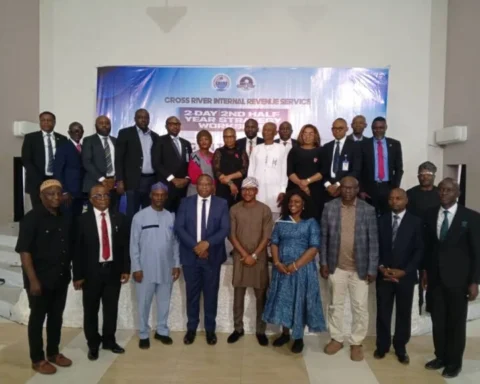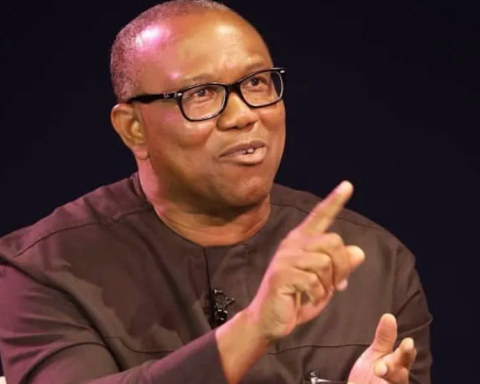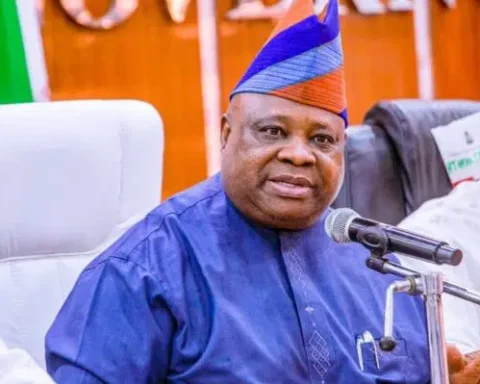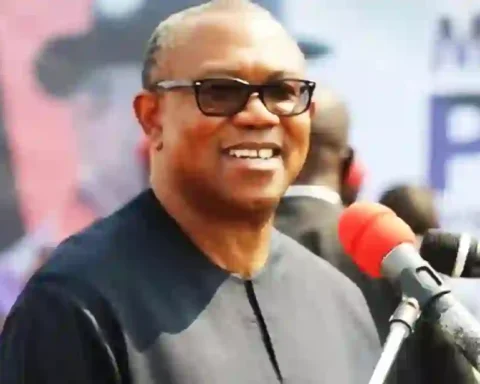PETER Obi, currently the main issue in Nigerian politics, is 64 years old today. It says a lot that one person in a country of 200 million others can encapsulate through their worldview the hopes and aspirations of the masses across all age groups, ethnic divisions, religious beliefs, and political allegiances. He manages to attract and repel with remarkable calmness the polarities of love and rejection from vast segments of the nation, displaying exceptional bravery and supreme confidence as he extends this invitation to his fellow countrymen and women: “Please, come with me, I know the destination of our national salvation, and I have meticulously charted a sure course to it.”
Decades ago, there was another politician in this country who believed in ideas, in planning, and in directly facing challenges. He always aimed to identify the core issues, not for fame, but to find ways of mastering them. As a Premier, he ran a government that invested heavily in education, building a university, a pioneering television station, and housing estates for his people. Yet not one of his achievements was named after him. In a moment of inspiration, General Ibrahim Babangida, as Military President, sent the man a birthday message in which he declared him “the main issue” in Nigerian politics. That man was, of course, Chief Obafemi Awolowo. There were a few others in Awo’s mould, including Dr. M. I.. Okpara, who, as Premier of Eastern Nigeria, oversaw the fastest-growing economy in the world. Dr. Okpara rapidly industrialised Eastern Nigeria and escalated educational growth from kindergarten to the tertiary level. Yet, he named none of his achievements after himself. By the time he passed in 1984, he did not have a house to his name.
Between Awo and Okpara, there is a common set of traits that are evident in Peter Obi. Neither valued extravagance nor engaged in chasing shadows. Neither made grand claims of unearned academic laurels, dubious ancestry, or unverified identities. Neither would have entertained, even for a millisecond, the inane thought of riding in a 100-vehicle cavalcade with sirens and horns blaring through dirty, potholed streets to showcase their political stature. To this practical and realistic duo, who harboured neither illusions nor pretensions, being grounded in thought and positive actions was the guiding philosophy.
Peter Obi is cast in that mould, which is why, for each of his claims and postulations, he optimistically leaves a challenge: “Go and verify!” As a State Governor, Peter Obi was often in convoys of just a handful of vehicles bearing only officials, security personnel, and pressmen. Well, Awo passed in 1987.
Neither he nor Okpara departed with their legacy. Their positive footprints in the sands of time remain with the people they led – a testament to steadfastness and purposefulness. Peter Obi is very much around. So, how would he mark his anniversary today? One thing is certain. There would be no parties. Stories abound in this country of folks with undocumented pedigrees and undeclared sources of wealth who hire tourist Caribbean villages in any of Barbuda, the Cayman Islands, Mustique, Eleuthera or Saint Kitts, etc., for the celebration of their birthdays with bashes crawling with aspiring felons, freeloaders, hangers-on, never-do-wells, assorted parasites, and plenary sycophants. Count Peter Obi out of such bizarrity. He would rather sit alone or with like minds to ruminate and meditate on ways to improve the Nigerian condition.
It is this practice of subjecting Nigeria to co [remainder of message body omitted; too large]



























